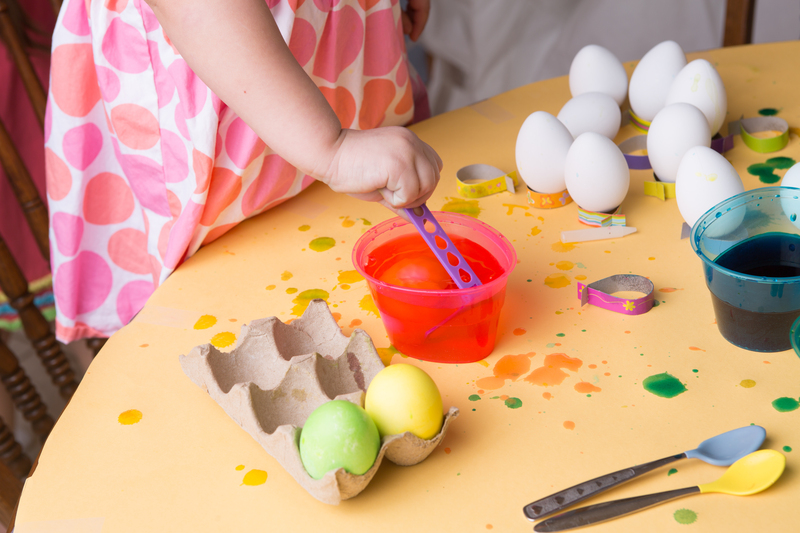Discover the Best Ways to Tackle Damp Odor
Posted on 02/10/2025
Discover the Best Ways to Tackle Damp Odor
Damp odor, often characterized as musty or moldy, can quickly turn a comfortable living space into an unpleasant environment. Whether caused by excess humidity, water leaks, or inadequate ventilation, tackling these smells isn't just about comfort--it's vital for your health. Mold and mildew, the usual culprits behind damp smells, can trigger allergies and other respiratory issues. This comprehensive guide will help you discover the best ways to tackle damp odors, ensuring your home remains fresh, inviting, and safe for everyone.

Understanding Damp and Musty Odors
Before jumping straight to solutions, it's essential to understand what causes damp odors. A damp smell is an indicator of excess moisture in the environment, which often leads to mold or mildew growth. These fungi release tiny spores and organic compounds that carry the characteristic musty scent.
Common Causes of Dampness and Musty Smells
- Poor ventilation in rooms, closets, or basements
- Plumbing leaks in walls, under sinks, or behind appliances
- Flood damage or water intrusion from heavy rains
- Condensation buildup in bathrooms or kitchens
- Wet building materials--carpets, drywall, insulation
- Leaving damp laundry or towels unwashed for too long
Identifying the root cause is crucial. Treating the symptoms (the smell) without fixing the source may only provide temporary relief. Now, let's explore the most effective ways to get rid of musty odors and restore freshness to your home.
Proven Methods to Eliminate Damp Odor
1. Improve Ventilation
Fresh air is your first and best defense against musty smells. Every home needs proper airflow to help reduce humidity and disperse any lingering odors.
- Open windows and doors for extended periods each day, weather permitting.
- Use exhaust fans in bathrooms, kitchens, and laundry rooms to pull moisture out.
- Consider installing whole-house ventilation systems or strategically placed vents in problem areas.
- Closets and cabinets also need airflow--leave the doors open occasionally to air them out.
2. Reduce Humidity with Dehumidifiers
To tackle the damp smell at its source, it's essential to keep your home's relative humidity levels below 60% (ideally 30-50%). Excess humidity not only produces bad odors but also fosters mold growth.
- Invest in a quality dehumidifier for chronic problem rooms (basements, laundry areas).
- Run the dehumidifier continuously during wet seasons or after water damage.
- Monitor humidity with an affordable hygrometer.
- Don't forget to empty and clean the dehumidifier reservoir frequently.
3. Identify and Fix Water Leaks Promptly
Persistent or recurring damp odors are often linked to hidden leaks. Address any signs of moisture as soon as possible:
- Check under sinks, behind washing machines, and around water heaters for leaks.
- Inspect ceilings, walls, and baseboards for water stains or soft, swollen spots.
- Seal gaps or cracks in windows, exterior walls, and foundations to prevent seepage.
- If leaks are detected, call a professional plumber or contractor to perform repairs quickly.
4. Clean and Remove Mold or Mildew
Eliminating mold and mildew not only removes the musty smell but also makes your space healthier. Always use protective gear--gloves, masks, goggles--when cleaning mold:
- Clean hard surfaces (tiles, floors, glass) with a mixture of white vinegar and water or a store-bought mold remover.
- For painted walls, gently wipe with a damp cloth and mild soap. Avoid saturating the area.
- If mold grows on soft materials (carpets, insulation), they may need to be replaced.
- Dispose of heavily contaminated items in sealed bags.
Pro Tip: Always dry affected areas thoroughly after cleaning to prevent mold from returning.
5. Absorb Odors Naturally
While addressing the causes, you can also use natural odor absorbers for fresher air:
- Baking soda: Place small bowls of baking soda in closets, drawers, or shoes.
- Charcoal: Activated charcoal bags can be placed in musty rooms or vehicles.
- White vinegar: A bowl of vinegar left out overnight helps neutralize pungent smells.
- Coffee grounds: Dried grounds in a breathable bag can absorb odors delightfully.
- Kitty litter: Place in open containers to draw out moisture and odors, especially in basements.
6. Deep Clean Carpets, Upholstery, and Curtains
Porous materials act as sponges for dampness and smells. Tackling these surfaces is key to removing lingering musty odors:
- Launder curtains, bedding, and removable covers regularly.
- Rent or hire a professional for steam cleaning carpets and upholstered furniture.
- If bad smells persist, sprinkle baking soda liberally on carpets, let it sit overnight, then vacuum thoroughly.
Preventing the Return of Damp Odors
1. Improve Drainage Around Your Home
- Ensure gutters and downspouts are clear and direct water away from the foundation.
- Grade landscaping so water drains away from, not toward, your house.
- Maintain sump pumps and consider a French drain in wet areas.
2. Regular Home Maintenance
- Check for leaks seasonally, especially after heavy rain or snow.
- Inspect your roof for missing shingles and your foundation for cracks.
- Sealing grout lines in bathrooms and kitchens prevents water infiltration.
3. Store Items Correctly
- Keep seldom-used items in airtight containers rather than cardboard boxes.
- Don't pile clothing or textiles in damp corners; use hanging racks or shelves for airflow.
- Store firewood and other absorbent materials outside, away from living spaces.
4. Maintain a Consistently Low Humidity
- Use exhaust fans every time you cook, shower, or use hot water appliances.
- Hang laundry outside to dry when possible, or use a dryer vented outdoors.
- Install moisture traps like silica gel packets in wardrobes and cupboards.
When to Call in Professional Help for Damp Odors
Some damp odor problems are too large or persistent to address alone. You should consult a professional if:
- There is a large area of mold growth (larger than 10 square feet).
- You notice structural damage like rotting wood, warped floors, or sagging ceilings.
- Repeated cleaning doesn't reduce the musty smell.
- You or your family experience persistent allergic reactions or respiratory symptoms.
Certified mold remediation experts have the equipment, knowledge, and training to safely and effectively remove mold and dampness at the source.

Frequently Asked Questions About Damp Odors
What are quick ways to get rid of damp smells?
Short-term solutions include using odor absorbers (like baking soda or charcoal), airing out the space, and cleaning all soft furnishings. Dehumidifiers and fans can help dry the air quickly.
Is it safe to use air fresheners for musty odor?
Air fresheners may temporarily mask a damp smell, but they do not address the underlying issue and should not be the primary remedy. Focus on moisture control and cleaning for long-lasting results.
Why do basements always seem to smell musty?
Basements are prone to high humidity and poor ventilation, which creates perfect conditions for mold growth. Prevent basement odors with dehumidifiers, tight window seals, and regular inspections for leaks.
Can indoor plants help with damp odors?
Some indoor plants help purify the air but are not a substitute for removing moisture or cleaning mold. Overwatering plants can actually contribute to indoor dampness if not managed properly.
How can I stop closets from smelling musty?
- Keep closets decluttered and avoid storing damp items inside.
- Use moisture absorbers or dehumidifier packs.
- Periodically air out the closet and launder contents as needed.
Conclusion: Take Action to Banish Damp Odor for Good
Damp odors don't just disappear on their own. They signal an underlying moisture problem that demands attention for both comfort and health reasons. By following these best practices to tackle musty smells--from increasing ventilation, controlling humidity, finding and fixing leaks, to cleaning and prevention--you can maintain a fresher, healthier home environment year-round.
Remember, the key to effective damp odor removal is addressing both the symptoms and the causes. For persistent or severe problems, don't hesitate to seek professional help.
Key Takeaway: Tackle Damp Odors Effectively
- Identify the source of moisture quickly.
- Clean and dry affected areas thoroughly.
- Use natural odor absorbers and keep humidity low.
- Prevention is the best cure--maintain your home regularly!
No one should have to live with the discomfort of a musty, damp-smelling home. With these strategies, you'll be able to say goodbye to unpleasant odors and enjoy a fresher, healthier living environment--now and for the future!



